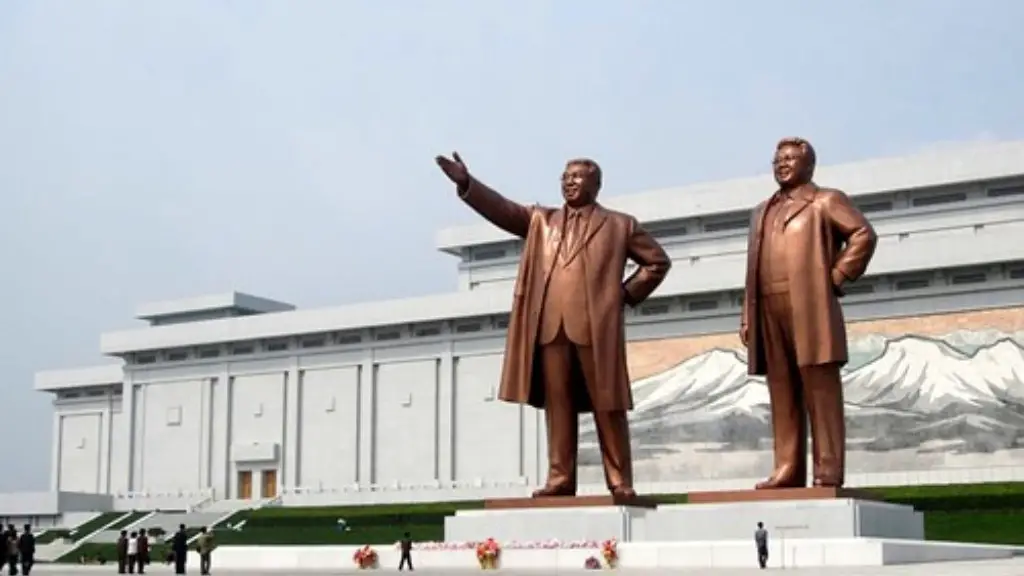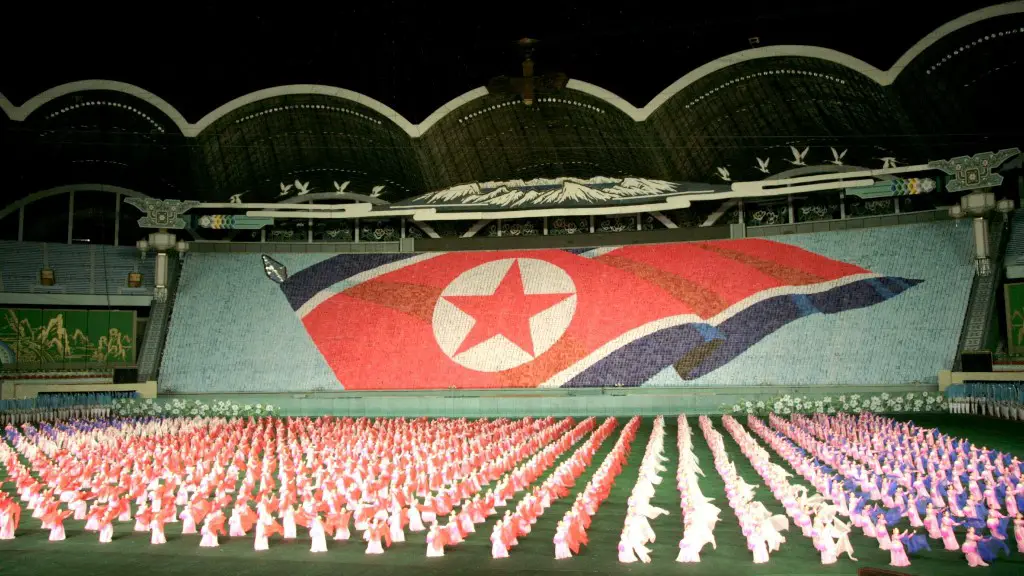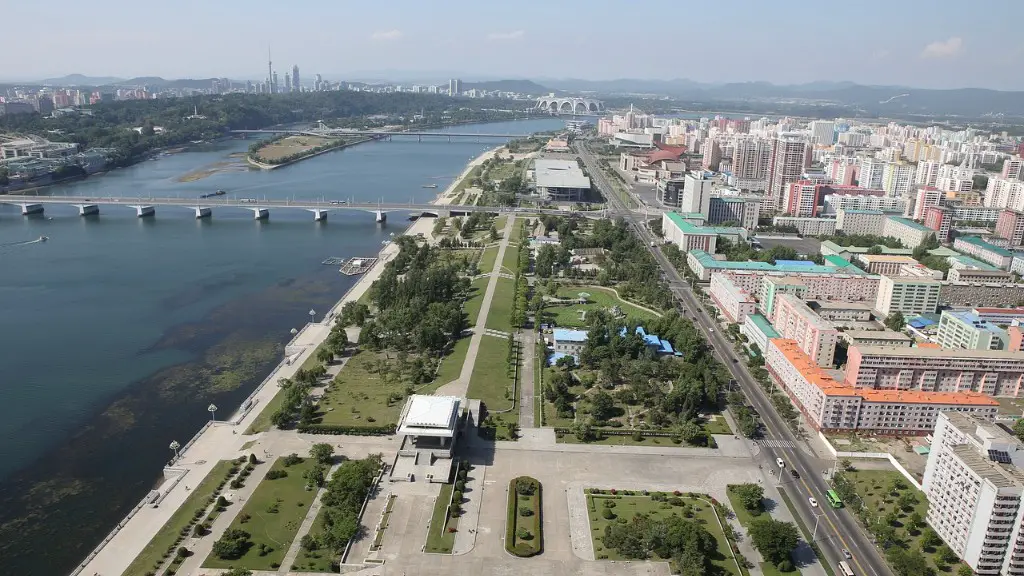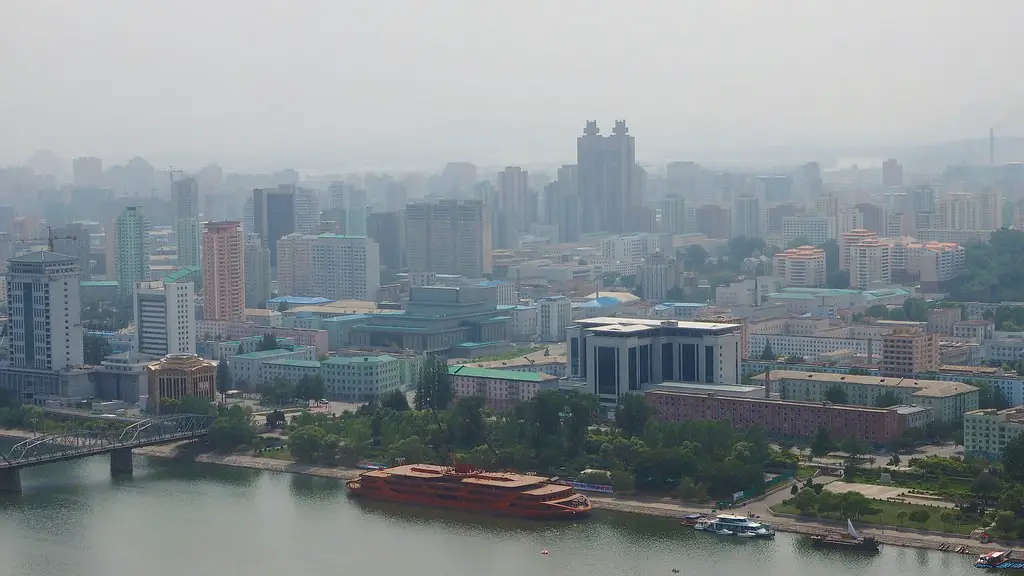North Korea has remained a mysterious, impenetrable country, closed off from much of the world. It has recently achieved unparalleled prominence in international politics due to its development of a nuclear weapons programme, its strained relationship with the United States, and its strong hostility towards neighbouring South Korea. Despite decades of international sanctions and pressure, it has continued its hostile actions with alarming frequency, leaving the international community to grapple with how to contain the rogue nation’s activities.
North Korea’s supreme leader Kim Jong-un appears to be intent on maintaining a threatening stance towards rival nations, and has continued to test Intercontinental Ballistics Missiles (ICBMs), despite widespread criticism from both the global and regional community. Kim’s sole aim appears to be achieving military might, and up until now, there have been little signs of him showing any desire for diplomatic negotiations. All evidence indicates that North Korea is continuing its efforts to militarize, despite global pressures and warnings against doing so.
In addition to ramping up its arsenal of nuclear weapons, North Korea has also engaged in other forms of aggression, such as jamming global satellite communications, launching cyber attacks, and provocative rhetoric. This strategy has been employed in an attempt to destabilize the region and to promote regime control. That South Korea is by far the most affected by this continual belligerence is no less to the recent closure of a joint industrial park and increased sanctions imposed by the United Nations.
The international community’s attempts to contain North Korea’s nuclear threat have been met by resistance and obstruction. North Korea has continually ignored its adherence to the Non-Proliferation Treaty (NPT) and its repeated refusal to participate in any kind of inspections or diplomatic negotiations. Meanwhile, the country continues its nuclear tests, and its arsenal is estimated to now include up to 100 weapons, according to reports from the United States. In the face of such a development, many fear the prospect of nuclear global chaos, and doubt that diplomacy alone will be enough.
The danger of North Korea developing more advanced weaponry and improving their ICBM capability means the global community must remain vigilant not just on the military front, but also on the front of diplomacy. Due to the failure of economic sanctions to change the country’s behaviour, and the regime’s belief in its own autonomy, there remains doubt over whether negotiations will bear any fruit. Consequently, the international community must look towards other methods to achieve some kind of compromise or modus vivendi with North Korea.
What Are The International Community’s Options
The situation has been further complicated by US President Donald Trump’s volatile rhetoric, and his escalation of tensions with North Korea. While some see diplomatic negotiations and economic sanctions as the only viable methods of bringing North Korea to the negotiating table, other experts are advocating tougher measures, such as the initiation of a military strike against the country’s weapons facilities. Such an aggressive move has been strongly opposed, however, by many powers, as it could have catastrophic consequences.
With North Korea furthering its nuclear ambitions, it appears that the scenario of a military intervention is becoming increasingly unlikely, and the need for a more diplomatic approach gains greater urgency. Already, China and South Korea have shown some initiative in this regard, proposing plans of dialogue between the two countries that have been rejected by the North Korean regime. There is, of course, the option of nonviolent resistance or organizations like the United Nations providing aid and assistance to the country, along with increased diplomatic engagement.
Experts agree that dialogue and engagement are ultimately the only way forward. Most prioritize building bridges with the North Korean government instead of provoking military confrontation. They support providing economic assistance and engaging in dialogue at a political level, rather than relying on pressure from international economic and military sanctions.
Are There Alternatives To Military Intervention
One example of the power of nonviolence to break the cycle of fear and tension is the approach taken by Buddhist communities in North Korea. There, peaceful drones, opposed to loud protests, are helping to open up space for conversations and even forgiveness. Through their non-confrontational activities and compassionate messages, these groups have been instrumental in bridging the gap between North Korea and the international community.
Others suggest intensifying the financial sanctions already in place, coupled with increased diplomatic efforts and public awareness campaigns. Such a strategy would work through the UN Security Council and other international organizations and should be coupled with potential prospects of sanctions relief and the prospect of reconstructing North Korea’s shattered economy. Such an approach is seen as having a much greater chance of success than any military intervention, which goes against all accepted norms of international law and diplomacy.
Another possible avenue for conflict resolution is the utilization of international intermediaries, such as China and Russia. They could act as third-party intermediaries in negotiations, or provide some sort of ‘peacekeeping’ force in order to reduce any potential for the outbreak of military conflict between North Korea and its neighbours.
What Can Be Learned From Past Experience
Past experiences also demonstrate that a negotiated solution is more successful than a military one. In the early 2000s, North Korea had agreed to abandon its nuclear weapon development in exchange for economic aid and diplomatic normalization. However, the agreement ultimately failed due to the mistrust that existed between the US and North Korea. Since then, dialogue and negotiations have not been able to make much progress, as North Korea has shown an unwillingness to negotiate.
Contrary to popular belief, North Korea’s motivations are not just related to weapons development and power. North Korea is an incredibly isolated country, and its leadership is driven by a desire for legitimacy and acceptance in the international community. This could point to a way forward for a negotiated solution via economic and political incentives, rather than through threatening military confrontation.
Ultimately, it is clear that North Korea’s nuclear ambitions must be curbed in some way and that peaceful resolutions must be sought in order to ensure stability in the region. The international community must continue to address this issue with urgency and seek out a robust and well-thought-out solution that takes into account the North Korean regime’s motivations and concerns.
What Role Could International Organizations Play
International organizations, such as the United Nations, can play a key role in promoting negotiations and relaxation of tensions between both sides. They can facilitate dialogue and communication through providing dispute-resolution mechanisms, or by issuing resolutions or statements of condemnation or condemnation-requests aimed at both North Korea and regional countries. Additionally, the United Nations could provide much-needed humanitarian aid and development assistance to North Korea, in order to improve the lives of its citizens and prevent the escalation of tensions.
The role of international organizations could go beyond just mediating negotiations between North Korea and foreign countries, and could include measures such as monitoring North Korea’s compliance with international agreements, performances, and obligations. This would help ensure that the country is held to the same high standards as other countries, and would help ensure that North Korea abides by international law and regulations.
Furthermore, the role of international organizations should not be limited to just providing assistance and monitoring North Korea’s activities. They should also incoroporate the interests and perspectives of North Korea in any future negotiations. This would help ensure that North Korea can express its grievances and ultimately come to some kind of resolution that is just and satisfactory for all involved.
What Could The US Do To Resolve The Crisis
US policy towards North Korea will remain an important part of any effective solution. While the Trump administration has largely refused to engage in any serious negotiations or dialogue with North Korea, recent actions have signalled a softening of the US stance. The US recently rejoined the UN human rights body, indicating a shift from its ‘maximum pressure’ approach. This move has been welcomed by observers, as it could open up new possibilities for dialogue and diplomacy.
The US is also one of the largest contributors to international aid and development assistance to North Korea. This could be used to incentivize the North Korean regime to consider negotiation, as it could provide much needed economic relief to a struggling country. This could also be coupled with increased diplomatic talks to build trust and understanding between both sides.
The US has also been providing extensive amounts of humanitarian aid to North Korean refugees, as well as to defectors in neighbouring countries. This is a sign of the US’s continued engagement and commitment to improving the lives of those affected by the North Korean conflict. This could potentially be a powerful tool in gaining the trust of North Koreans and ultimately helping to bring about an end to the current stalemate.
What Reactions To North Korea’s Actions Could Be Expected
The possibilities of international interventions against North Korea are difficult to forecast, as they of course depend on the international community’s reaction to its ongoing activities. In the short-term, the introduction of additional sanctions may have limited effect in the face of North Korea’s obstinate behaviour, and the introduction of a military intervention could have disastrous consequences.
In the long-term, however, it is likely that increased international pressure, both political and economic, could lead to changes in the regional and international balance of power, and could potentially influence North Korea’s behaviour. As such, it is clear that the situation requires a nuanced and carefully considered response that could take into account the interests of all involved, and bring about a lasting peace and stability for the region.
At the same time, it is important to note that many experts believe that diplomatic solutions are the most effective way of resolving this conflict. Therefore, the international community should explore all potential solutions, including through utilizing international organizations and intermediaries, and utilizing nonviolent means such as providing aid and dialogue.





